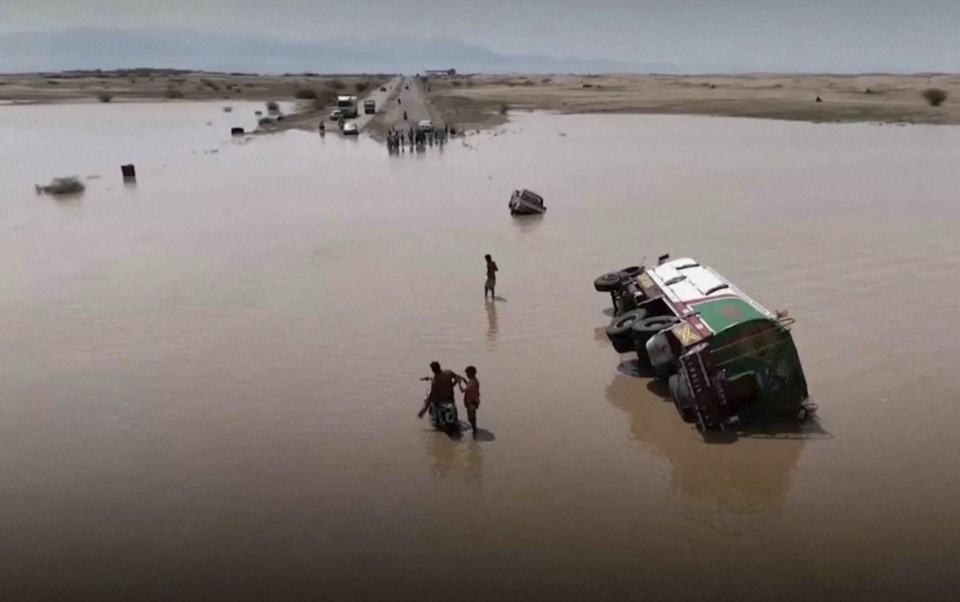SANAA, Yemen (AP) — A Yemeni official said Wednesday that 30 people have been killed and hundreds displaced in flooding in the southern city of Hodeidah following several days of heavy rains.
Hodeidah Gov. Mugammad Qahim told Houthi rebel-controlled Masirah TV that the floods displaced people from 500 homes. Five people were missing, he said.
Hodeidah, the southwestern city of Taiz, and the northwestern city of Hajjah were all hit hard by floods this week during Yemen’s ongoing seasonal rainfall that caused flooding that swept away poorly built homes.
Authorities have not announced a confirmed overall death toll, or given the overall number of people injured or missing.
Yemen’s rainy season begins in late March, and rains intensify in July through mid-August.
The U.N.'s humanitarian office in Yemen said Wednesday afternoon that Friday floods in the Maqbnah district in Taiz city killed 15 people, cleared agricultural lands and damaged homes and infrastructure.
Further severe weather was expected to hit the western port city of Hodeidah later on Wednesday.
Some residents have reportedly been stranded inside their homes in al-Mansuriyah district since Tuesday night as roadways have been blocked.
Local authorities still haven’t reached areas severely affected by the floods for two days, leaving some residents trapped inside their homes, according to witnesses who spoke with The Associated Press.
Mahdi al-Mashat, chairman of the Supreme Political Council, ordered local authorities to respond to damaged areas, according to Masirah TV, which reported that floods caused “major damages to properties, lands, and roads” in Hodeidah.
Witnesses described the scene in the Yemeni Tihamah coastal plain as horrifying. Mohamed Rassam said some livestock were found dead after drowning in the mud due to the floods. Food supplies and drinkable water were also lost.
“The floods swept away everything,” he said.
Some residents were stranded inside their homes in Tihamah, a region that is part of Hodeidah. Others were able to leave and headed to Hodeidah city.
Many of the houses in Tihamah, where malnutrition has been reported, are made of brick and materials that can be easily ruined by rain.
“We have been left stranded under the rain after severe winds damaged our home, which is a hut where me and my seven children lived. Authorities never provided any assistance,” said Ahmed Ayesh.
Meanwhile, Khaled Meswat said that people in the community only hear about humanitarian assistance and emergency services, but never actually receive any. He said at least three people were swept away by the floods, while elderly people died of hunger and cold.
“I can say that hundreds of houses built from straw in Tihamah have been swept away by the floods over the past 24 hours,” said Faree Hamdan. He added that cattle and livestock in those areas were also swept away.
The United Nations Population Fund-Yemen said this week on the social media platform X that the floods impacted more than 28,000 people living in four districts in Hajjah city.
Rapid response teams led by agency have been carrying out assessment and response operations and have recorded around 4,112 families who need emergency relief, according to the agency.
Yemen’s ruinous civil war began in 2014 when the Houthis seized the capital of Sanaa and much of northern Yemen and forced the internationally recognized government into exile. A Saudi-led coalition including the United Arab Emirates intervened the next year to try to restore the government to power.
___
Associated Press writer Fatma Khaled in Cairo contributed to this report.
Ahmed Al-haj, The Associated Press


